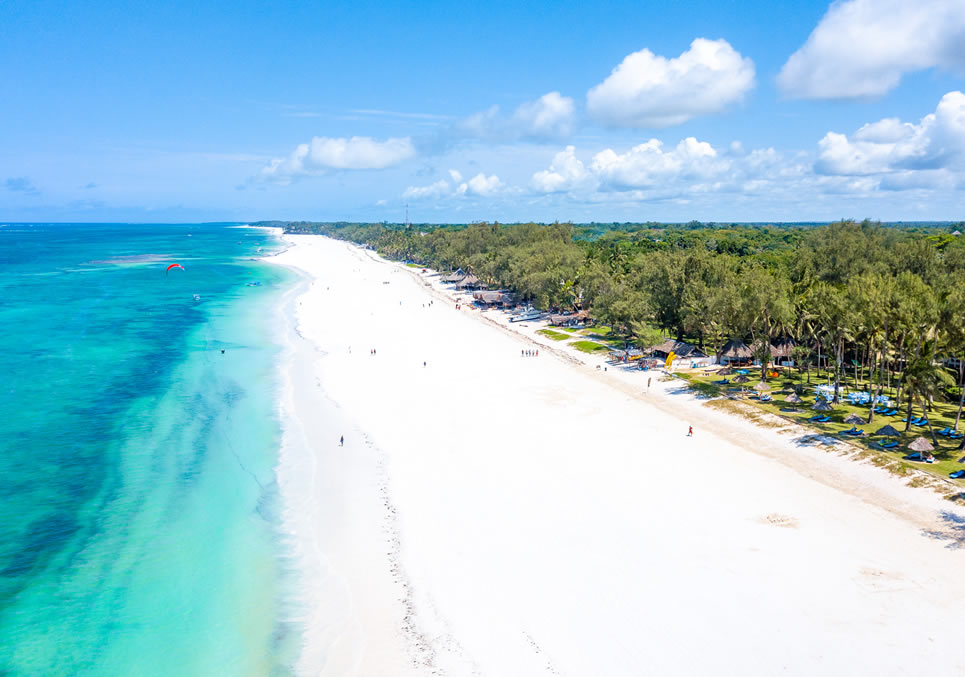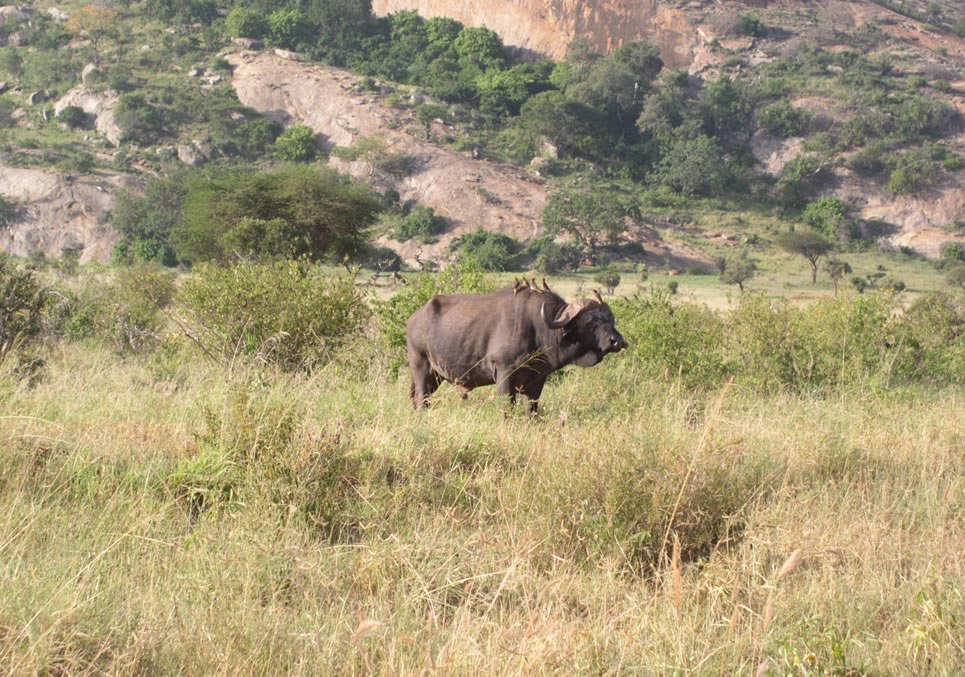- Safari Route

Day 1: Mombasa –Tsavo East.
Drive to Tsavo East National Park the largest park in Kenya founded in 1948. The greatest attraction and enchanting experience is provided by Yatta Plateau. Lugard Falls is known for its numerous streams. The Athi and Tsavo River meet to form the magical river Galana. The Mudanda rock adds charm to the scenic beauty. The reservoir of Aruba Dam imparts ambiance to the atmosphere. The bushy grassland and shrubs are in contrast to its flat and dry plains. It has been awarded as World’s leading Bio-Diversity zone.
Tsavo East National Park attracts attention with its diverse wildlife. The most fascinating are the hirola antelope, elephant herds and the huge masai giraffe. Make game drive on your way to Voi safari Lodge for lunch. After lunch relax and make an evening game drive whilst checking out of the park and drive to Tsavo West National Park. Make game drive en route to Kilaguni Serena Lodge/Rhino Valley Lodge for dinner and overnight.
Day 2 : Tsavo West
Have early breakfast after that make game drive viewing the beautiful Tsavo West Mountains and a visit to Mzima Springs to spot Hippos, Crocodiles and Fish in the crystal clear waters. Drive back to the lodge for lunch. After lunch exit the lodge and make final gamedrive . Drive back to Mombasa, arriving at your coastal hotel in the early evening .

- PARKS VISITED
- ABOVE ITINERARY INCLUDES
- Melas(1 Night) 1x Breakfast, 2x Lunches, 1x Dinner
- Park Entrance Fees
- Accommodation
- Transport
- Transport,
- All Government taxes and levies
- Drive/guide in a Safari
- EXCLUDES
- Drinks at the lodges
- Masai Village fees
- Tips and things of personal nature
- Related Safaris
Each season offers unique experiences, and the best time to visit depends on individual preferences regarding weather, wildlife activity, and budget.
- High Season
- Time Period: July to October
Wildebeest Migration
One of the main attractions during this period is the Great Migration in the Maasai Mara, where millions of wildebeest, zebras, and other animals migrate from the Serengeti in Tanzania to the Maasai Mara in Kenya.
Weather
This period coincides with the dry season, making it ideal for wildlife viewing as animals gather around water sources.
Tourist Influx:
he influx of tourists is highest during this time
- Mid Season
- January to March, and November to December
Weather
The weather is generally dry from January to March, making it another good time for wildlife viewing. November and December are short rainy seasons, but the rains are typically less intense and shorter in duration.
Wildlife Viewing
Wildlife is still abundant, and many animals can be seen with fewer crowds compared to the high season
Tourist Influx
There is a moderate influx of tourists, and prices for accommodation and tours are slightly lower than in the high season.
- Low Season
- April to June
Weather
This period coincides with the long rainy season, which can make travel more challenging due to muddy roads and higher chances of rain during the day
Wildlife Viewing
While wildlife is still present, viewing can be more difficult due to thick vegetation and fewer animals congregating around water sources
Tourist Influx
The number of tourists is at its lowest, leading to significantly lower prices for accommodation and tours.
